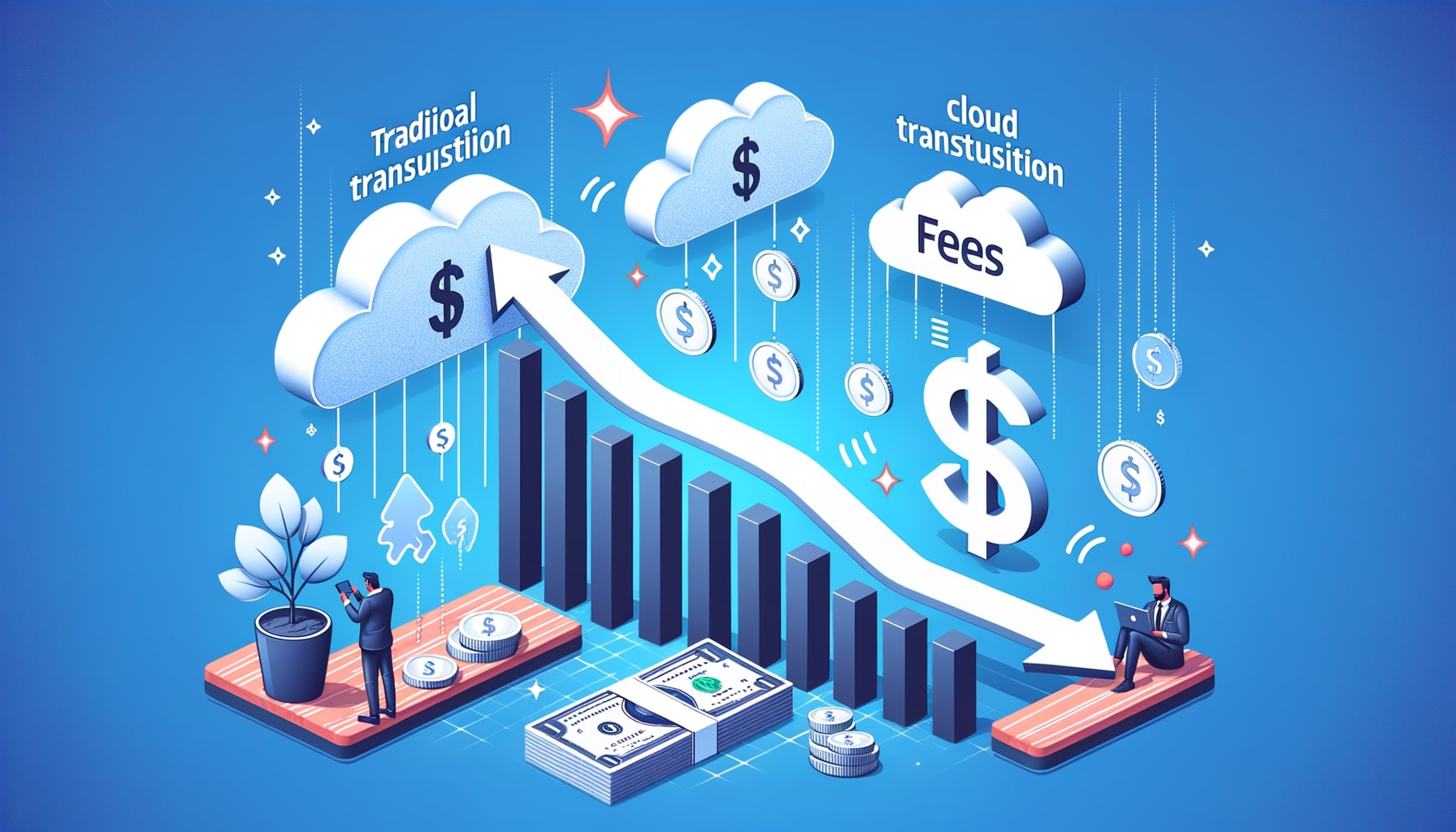Cloud Payment Solutions for the Travel Industry
In today’s digital age, the travel industry is constantly evolving to meet the demands of tech-savvy consumers. One area that has seen significant advancements is payment solutions. Cloud payment solutions have emerged as a game-changer for travel businesses, offering a range of benefits such as improved security, streamlined processes, enhanced customer experience, and integration with existing systems. In this article, we will explore the various aspects of cloud payment solutions for the travel industry and how they can revolutionize the way payments are made and managed.
Benefits of Cloud Payment Solutions for Travel Businesses
Cloud payment solutions offer numerous advantages for travel businesses, making them an attractive option for payment processing. One of the key benefits is the ability to accept payments from anywhere, at any time. With cloud-based systems, travel businesses can process payments online, over the phone, or even through mobile devices, providing convenience and flexibility to both the business and the customer.
Another significant advantage of cloud payment solutions is the improved security they offer. Traditional payment methods, such as manual card processing, can be prone to human error and security breaches. Cloud payment solutions, on the other hand, utilize advanced encryption and tokenization techniques to protect sensitive customer data. This not only reduces the risk of data breaches but also instills trust in customers, leading to increased loyalty and repeat business.
Furthermore, cloud payment solutions enable travel businesses to streamline their payment processes. With automated payment systems, businesses can eliminate manual tasks such as data entry and reconciliation, saving time and reducing the likelihood of errors. This allows staff to focus on more value-added activities, such as providing personalized customer service or developing new marketing strategies.
How Cloud Payment Solutions Improve Payment Security in the Travel Industry
Payment security is a top concern for both travel businesses and customers. The travel industry handles a vast amount of sensitive customer data, including credit card information, passport details, and personal preferences. Therefore, it is crucial for businesses to implement robust security measures to protect this data from unauthorized access or misuse.
Cloud payment solutions play a vital role in enhancing payment security in the travel industry. These solutions employ various security measures, such as encryption and tokenization, to safeguard customer data throughout the payment process. Encryption ensures that data is scrambled and can only be deciphered by authorized parties, making it virtually impossible for hackers to intercept and misuse the information.
Tokenization, on the other hand, replaces sensitive data with unique tokens that have no intrinsic value. These tokens are used for payment processing, while the actual data is securely stored in the cloud. Even if a hacker manages to gain access to the tokens, they would be useless without the corresponding data, providing an additional layer of security.
In addition to encryption and tokenization, cloud payment solutions often incorporate advanced fraud detection and prevention mechanisms. These systems use machine learning algorithms to analyze transaction patterns and identify any suspicious activities. By detecting and blocking fraudulent transactions in real-time, businesses can minimize financial losses and protect their reputation.
Streamlining Payment Processes with Cloud Payment Solutions
Efficient payment processes are essential for the smooth operation of travel businesses. Traditional payment methods, such as manual card processing or cash handling, can be time-consuming and prone to errors. Cloud payment solutions offer a streamlined alternative, automating various payment-related tasks and reducing the burden on staff.
One way cloud payment solutions streamline payment processes is through automated invoicing and billing. With cloud-based systems, businesses can generate invoices and send them to customers electronically. This eliminates the need for manual paperwork and speeds up the payment collection process. Additionally, businesses can set up recurring billing for regular customers, ensuring timely payments without the need for constant follow-up.
Furthermore, cloud payment solutions enable businesses to accept payments through multiple channels. Whether it’s online payments, mobile payments, or payments made over the phone, cloud-based systems can seamlessly integrate with various payment gateways and processors. This allows businesses to cater to the preferences of different customers and provide a convenient payment experience.
Another aspect of streamlining payment processes is the integration of payment systems with other business functions. Cloud payment solutions can be easily integrated with existing travel systems, such as booking engines or customer relationship management (CRM) software. This integration enables businesses to automate the payment collection process, update inventory in real-time, and provide a seamless experience to customers.
Enhancing Customer Experience with Cloud Payment Solutions
In the highly competitive travel industry, providing an exceptional customer experience is crucial for success. Cloud payment solutions can significantly contribute to enhancing the customer experience by offering convenience, flexibility, and personalized payment options.
One of the key ways cloud payment solutions enhance the customer experience is through the provision of multiple payment options. Customers today expect the flexibility to pay using their preferred method, whether it’s credit cards, debit cards, mobile wallets, or even cryptocurrencies. Cloud-based systems can integrate with various payment gateways and processors, allowing businesses to offer a wide range of payment options to their customers.
Moreover, cloud payment solutions enable businesses to offer personalized payment experiences. By integrating with CRM systems, businesses can access customer data and preferences, allowing them to tailor payment options and offers accordingly. For example, a frequent traveler may be offered a loyalty discount or a personalized payment plan based on their past booking history. These personalized payment experiences not only enhance customer satisfaction but also foster customer loyalty and repeat business.
Integrating Cloud Payment Solutions with Existing Travel Systems
Integrating cloud payment solutions with existing travel systems is crucial for maximizing the benefits and efficiency of payment processing. Travel businesses often have multiple systems in place, such as booking engines, property management systems, and CRM software. Integrating these systems with cloud payment solutions can streamline operations, improve data accuracy, and provide a seamless experience to both businesses and customers.
One of the key benefits of integrating cloud payment solutions with existing travel systems is real-time inventory management. When a payment is made, the inventory is automatically updated, ensuring accurate availability information for customers. This eliminates the risk of overbooking or double bookings, leading to improved customer satisfaction and reduced administrative work for staff.
Furthermore, integration with CRM systems allows businesses to access customer data and payment history in real-time. This enables businesses to provide personalized payment options, targeted offers, and loyalty rewards based on customer preferences. For example, if a customer has a history of booking luxury accommodations, they may be offered exclusive payment plans or discounts on future bookings. This level of personalization enhances the customer experience and increases the likelihood of repeat business.
Choosing the Right Cloud Payment Solution for Your Travel Business
Choosing the right cloud payment solution is crucial for the success of your travel business. With numerous options available in the market, it’s essential to consider factors such as security, scalability, integration capabilities, and cost-effectiveness.
When evaluating cloud payment solutions, security should be a top priority. Look for solutions that offer robust encryption and tokenization techniques to protect customer data. Additionally, consider solutions that are compliant with industry standards, such as the Payment Card Industry Data Security Standard (PCI DSS). This ensures that the solution meets the necessary security requirements and reduces the risk of data breaches.
Scalability is another important factor to consider. As your travel business grows, you may need to process a higher volume of transactions. Ensure that the cloud payment solution can handle increased transaction volumes without compromising performance or security. Scalability also extends to the ability to integrate with other systems and payment gateways, allowing for future expansion and flexibility.
Integration capabilities are crucial for seamless payment processing. Look for cloud payment solutions that can easily integrate with your existing travel systems, such as booking engines, property management systems, and CRM software. This integration eliminates the need for manual data entry and ensures accurate and up-to-date information across all systems.
Finally, consider the cost-effectiveness of the cloud payment solution. Evaluate the pricing structure, including any setup fees, transaction fees, and ongoing maintenance costs. Compare the features and benefits offered by different solutions to determine the best value for your business. Additionally, consider the level of customer support provided by the solution provider, as prompt and reliable support can be crucial in case of any issues or concerns.
Common Challenges and Solutions in Implementing Cloud Payment Solutions
Implementing cloud payment solutions in the travel industry can come with its own set of challenges. However, with proper planning and preparation, these challenges can be overcome, leading to a successful implementation and improved payment processing.
One common challenge in implementing cloud payment solutions is data migration. Travel businesses often have a vast amount of customer data stored in various systems. Migrating this data to the cloud payment solution can be a complex and time-consuming process. To overcome this challenge, it is essential to plan the data migration process carefully and ensure that all necessary data is transferred accurately. Consider working with a professional data migration service provider to ensure a smooth transition.
Another challenge is training staff on the new cloud payment solution. Employees may be accustomed to traditional payment methods and may require training to adapt to the new system. To address this challenge, provide comprehensive training sessions to familiarize staff with the features and functionalities of the cloud payment solution. Additionally, offer ongoing support and resources to address any questions or concerns that may arise during the transition period.
Integration with existing systems can also pose a challenge during implementation. Different systems may have different data formats and protocols, making integration complex. To overcome this challenge, work closely with the cloud payment solution provider and your IT team to ensure seamless integration. Conduct thorough testing to identify and resolve any integration issues before going live with the new system.
Lastly, ensure that you have a backup plan in case of any system failures or downtime. While cloud payment solutions are generally reliable, technical issues can occur. Have a contingency plan in place to ensure that payments can still be processed and customer data remains secure during any downtime. Consider implementing redundant systems or backup servers to minimize the impact of any potential disruptions.
Frequently Asked Questions about Cloud Payment Solutions in the Travel Industry
Q: What is a cloud payment solution?
A: A cloud payment solution is a payment processing system that utilizes cloud-based technology to securely process and manage payments. It allows businesses to accept payments from various channels, such as online, mobile, or over the phone, providing convenience and flexibility to both the business and the customer.
Q: How do cloud payment solutions improve payment security in the travel industry?
A: Cloud payment solutions improve payment security in the travel industry through advanced encryption and tokenization techniques. These solutions protect sensitive customer data by scrambling it and replacing it with unique tokens, making it virtually impossible for hackers to intercept and misuse the information. Additionally, cloud payment solutions often incorporate advanced fraud detection and prevention mechanisms to identify and block fraudulent transactions in real-time.
Q: Can cloud payment solutions be integrated with existing travel systems?
A: Yes, cloud payment solutions can be easily integrated with existing travel systems, such as booking engines, property management systems, and CRM software. This integration allows businesses to automate payment processes, update inventory in real-time, and provide a seamless experience to customers.
Q: How do cloud payment solutions enhance the customer experience?
A: Cloud payment solutions enhance the customer experience by offering convenience, flexibility, and personalized payment options. These solutions enable businesses to accept payments through multiple channels and offer a wide range of payment options to customers. Additionally, by integrating with CRM systems, businesses can access customer data and preferences, allowing them to tailor payment options and offers accordingly.
Q: What factors should be considered when choosing a cloud payment solution for a travel business?
A: When choosing a cloud payment solution for a travel business, factors such as security, scalability, integration capabilities, and cost-effectiveness should be considered. Look for solutions that offer robust encryption and tokenization techniques to protect customer data. Ensure that the solution can handle increased transaction volumes and easily integrate with existing systems. Evaluate the pricing structure and compare the features and benefits offered by different solutions to determine the best value for your business.
Conclusion
Cloud payment solutions have revolutionized the way payments are made and managed in the travel industry. These solutions offer numerous benefits, including improved security, streamlined processes, enhanced customer experience, and integration with existing systems. By leveraging cloud-based technology, travel businesses can accept payments from anywhere, at any time, and provide a seamless payment experience to their customers. However, implementing cloud payment solutions can come with its own set of challenges. By carefully planning and addressing these challenges, businesses can successfully implement cloud payment solutions and reap the rewards of efficient and secure payment processing.










